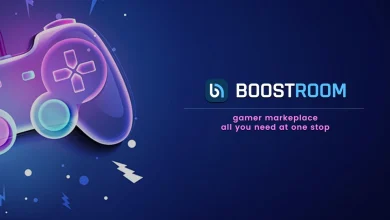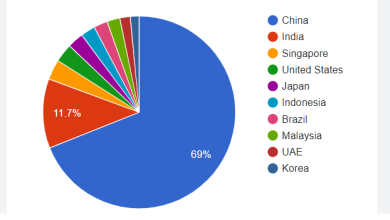How Gamer Marketplaces Promote Fair Trading Among Players

The growing popularity of online gaming has given rise to a new dimension of digital commerce: gamer marketplaces. These platforms enable players to buy, sell, and trade in-game items, services, and accounts with other gamers. With the increasing number of virtual goods and services circulating in these marketplaces, the need for fair trading practices has become essential. Fortunately, the marketplace for gamers is may designed to promote transparency, fairness, and trust, helping to create a balanced environment for both buyers and sellers. This article explores the ways in which gamer marketplaces ensure fair trading among players.
The Importance of Fair Trading in Gamer Marketplaces
Fair trading is crucial in any marketplace, and this is especially true for gamer marketplaces. When players buy or sell virtual goods, they are often dealing with valuable assets, whether it’s a rare in-game item, a leveling-up service, or a game account. Without a system of fairness in place, there could be issues such as price manipulation, scams, or unbalanced trades.
The gaming community thrives on trust, and a marketplace that fails to ensure fair trading risks damaging that trust. To maintain the integrity of these platforms, marketplaces for gamers adopt specific measures to protect both buyers and sellers. These practices help maintain a transparent trading environment and ensure that all transactions are conducted ethically and equitably.
Transparent Pricing and Listings
One of the most important aspects of fair trading is ensuring that all transactions are transparent. In gamer marketplaces, sellers must provide clear and accurate listings for the items or services they offer. This includes detailed descriptions, pricing information, and the condition of the items for sale. Transparent pricing helps buyers make informed decisions, ensuring they know exactly what they’re purchasing.
For example, if a seller lists a boosting service where they offer to increase a player’s ranking, the listing should clearly outline what’s included, such as the level of the boost, estimated timeframes, and costs. By offering full transparency, sellers can avoid misunderstandings and disputes, and buyers can feel confident in the value they’re receiving.
Some marketplaces for gamers may also implement pricing guidelines to prevent price gouging, ensuring that both high-value items and more common items are sold at fair and reasonable prices. This pricing transparency helps create a balanced market where players are not taken advantage of by unfair pricing tactics.
Rating and Review Systems
A key feature of any reputable gamer marketplace is the implementation of a rating and review system. This allows players to rate and review their experiences with other users, creating a feedback loop that fosters accountability. Both buyers and sellers benefit from this system:
- Buyers: A rating system helps buyers choose reliable sellers who have a history of providing quality products or services. Reviews allow them to see what other players have experienced, helping them make better purchasing decisions.
- Sellers: On the flip side, sellers who provide excellent service or products can use positive reviews to build their reputation and attract more buyers. Consistently positive feedback boosts trust and credibility.
The presence of ratings and reviews also encourages sellers to maintain high standards, as their reputation directly impacts their ability to succeed in the marketplace. Sellers who engage in unethical practices will quickly accumulate negative reviews, signaling to potential buyers that they cannot be trusted. This creates a self-regulating environment where fair trading is incentivized.
In platforms like Boostroom, sellers may also be encouraged to maintain high standards of service, such as offering boosting services with guaranteed results or offering in-game items that are compliant with the game’s terms of service.
Mediation and Dispute Resolution
Even in a well-regulated environment, disputes may occasionally arise between buyers and sellers. To promote fair trading, gamer marketplaces often implement mediation and dispute resolution processes. These systems are designed to help both parties reach a fair solution when a problem arises.
For instance, if a buyer receives an item that doesn’t match the description, or if a boosting service fails to deliver as promised, the marketplace may offer an intermediary service to mediate the situation. The marketplace will investigate the issue, assess the evidence, and work with both parties to come to a fair resolution.
Mediation services can prevent unfair outcomes for either party. By offering a neutral platform for resolving disputes, marketplaces for gamers reduce the chances of unjust transactions and provide an additional layer of protection for players engaging in trades.
Anti-Scam Measures
Scams are a concern in any online marketplace, and gamer marketplaces are no exception. However, many of these platforms take steps to prevent scams and ensure that all transactions are legitimate. Several anti-scam measures are commonly used to protect buyers and sellers:
Buyer Protection Programs
Some gamer marketplaces offer buyer protection programs that ensure buyers receive what they’ve paid for. If a buyer doesn’t receive the item or service they’ve purchased, they may be entitled to a refund or compensation. This helps protect buyers from dishonest sellers who may attempt to scam them.
Verified Sellers
Another anti-scam measure that promotes fair trading is the verification of sellers. Some gamer marketplaces implement a system where sellers must meet specific criteria or pass certain checks before they are allowed to list their products or services. Verified sellers are generally more trustworthy, as they are held to higher standards.
In some cases, platforms like Boostroom may have a system in place where service providers are carefully vetted, ensuring that only reputable sellers are allowed to offer boosting services or other in-game services. Verification programs help reduce fraudulent activity and improve the overall quality of transactions within the marketplace.
Secure Payment Systems
Payment security is another important aspect of fair trading. Gamer marketplaces often utilize trusted and secure payment processors to ensure that funds are transferred safely between buyers and sellers. By using secure payment methods, the risk of fraudulent transactions is minimized. Many platforms also implement escrow services, which hold the buyer’s payment until they confirm that the product or service has been delivered, further reducing the chance of scams.
Encouraging Ethical Trading Practices
Fair trading in gamer marketplaces doesn’t just rely on technological measures—it also involves promoting ethical behavior among users. Many platforms encourage sellers and buyers to follow ethical trading practices by adhering to a code of conduct or guidelines set by the marketplace.
These guidelines may include:
- Honesty: Sellers should provide accurate descriptions of the items or services they are offering.
- Respect: Players should respect one another’s time, money, and efforts, ensuring that all transactions are conducted professionally and courteously.
- Compliance: Sellers should ensure that the items or services they offer comply with the terms and conditions of the game or platform.
By promoting these values, marketplaces for gamers help foster a community of fair traders who respect one another and uphold high standards.
Conclusion
The rise of gamer marketplaces has revolutionized the way players buy, sell, and trade in-game items and services. To ensure that these transactions are fair and ethical, marketplaces for gamers employ a variety of measures, including transparent pricing, rating systems, mediation services, and anti-spam protections. These practices help build trust between buyers and sellers, creating an environment where fair trading can thrive.
For platforms like Boostroom, maintaining a reputation for fairness and reliability is essential. By offering services that adhere to ethical standards and implementing systems that protect both parties, such platforms contribute to a thriving, transparent, and safe marketplace for gamers. As the demand for virtual goods and services continues to grow, the role of these platforms in ensuring fair trading becomes even more crucial.




